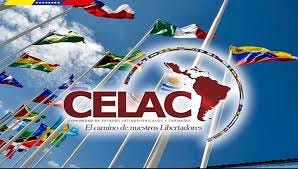On the occasion of the tenth anniversary of the proclamation by the Community of Latin American and Caribbean States (CELAC for its initials in Spanish) that the region is and ought to be a zone of peace, the Latin American Parliament has issued a declaration reaffirming its commitment to the concept of Latin America and the Caribbean as a zone of peace. The Declaration reiterated relevant essential principles of the Parliament, including: Latin American integration; non-interventionism; the right of peoples to self-determination, that is, their right to freely decide on their political, economic, and social system; the condemnation of the threat or use of force against the political independence and territorial integrity of states; the peaceful and just solution of international disputes; and friendship and cooperation among states.
CELAC was established in 2011, the culmination of the process of Latin American and Caribbean regional integration, which was initiated in 2004…



